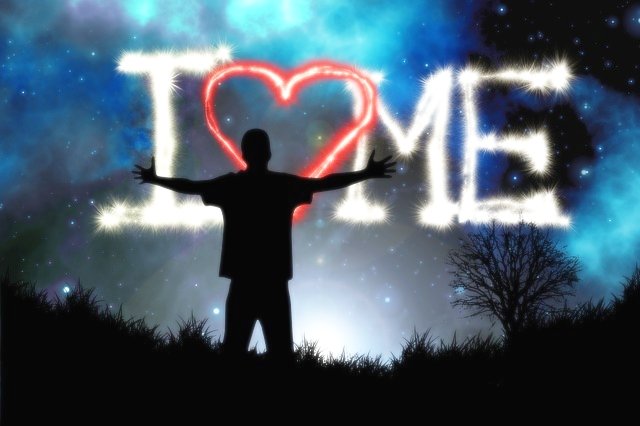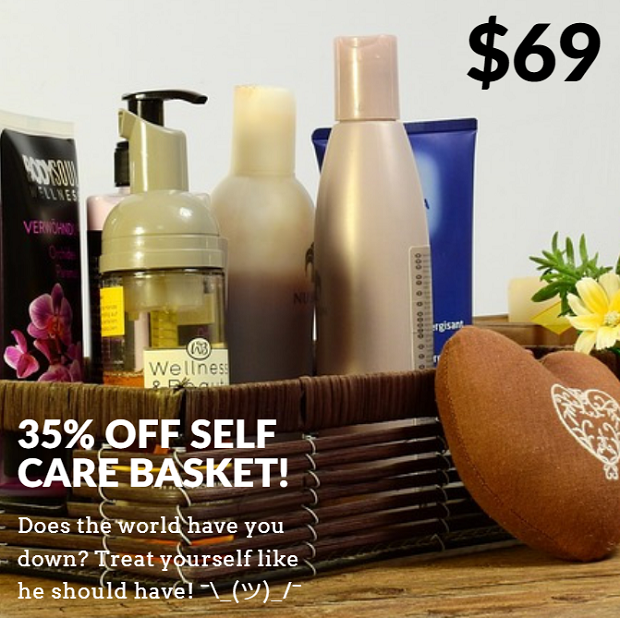Read all About the Cringiest Buzzword of the Decade!

Several years back, a group of nefarious market forces banded together and worked on a clever scheme to rope affluent trendies into a new holiday, one whereby consumerism would be just as popular if not more so than the months leading up to Christmas, only, the purveyors of this new holiday, they did not market it based upon religious traditions, nor did they relegate it to a single day in the year. This new holy day allows for all people to celebrate no matter their religion, lack thereof, or day of the week. What I’m speaking to, is the term "self-care."
In essence, "self-care" is pursuing the enjoyable, and that's something everybody has always done, but few have tried to label it. Those that label it, or use the label, are traditionally attempting to sell you on something. Back in the 80s, Bobby McFerrin gave it his best shot with ‘Don’t Worry Be Happy’; and the only thing he was trying to sell you was his album. Everyone loved his song, i.e., until the moment they hated it with a passion and that’s because the radio stations overplayed it.
Similarly today, the overused term “self-care” has become a proverbial gold mine to marketers looking to capitalize off of people and their desperate need to be in vogue. The reason it works from a marketing perspective is that self-care is the commodification of self-indulgence. The traditional method of sales is to sell a person a product. This, based on how that product can change their life.
However, when marketing gurus sell people on the idea – that they should treat themselves more because it’s “the healthy thing to do,” that in and of itself eases all doubt, guilt, or concern about the practicality of a potential purchase. It doesn’t matter what the product is, any fashion magazine can write an article giving out self-care tips next to select advertisements.
So, what you begin with is a mystical concept, and I say it’s mystical because self-care is code for anything that makes people happy, and since there are so many things that make people happy the term is vague to the point where it can be defined and redefined ad infinitum. Again, it’s a perfect tool for marketers, they pitch you on the idea you need to treat yourself more to live a healthy life, and when you’re sold on that, they demystify the concept by prescribing as a doctor does with medicine, exactly what product it is that you are to consume.

This is 21st-century mind control at either it’s best or worst depending on your vantage point. What perturbs me the most about the terminology is how millennials and snowflakes latch onto the concept and many times use it to virtue signal how trendy they are. Back in the day when people wanted to do something fun, they’d generally just tell you what that something is. E.g., I will go to an awesome concert this weekend, get wasted and have me a grand old time!
Whereas today, if you ask snowflake Jane or James about their weekend, they might say something to the effect that they’ll be having a self-care day on Saturday and mowing the lawn on Sunday. You see, instead of actually telling you what they’ll be doing, they’ll introduce you to a term that obfuscates what they’re doing. This, just so that you’ll ask them again what they’re doing and then they can proudly tell you what that thing is, effectively putting you on notice that that’s what self-care meant to them on that particular day of that specific week.

P.S. If this article offended you, you can go hug yourself!
Images were brought to you courtesy of Pixabay! [1] [2]
Self-care curation of @thoughts-in-time
by @thoughts-in-time for #informationwar
Too healthy, much progressive, very wow!Ways you can help the @informationwar!
FreezePeach
I agree that they twist all the good aspects of independence to lead people down a path of dependency on them and a path of destruction and a path of subliminal confusion. I was downvoted for having an opinion. I am not allowed to deny infinite numbers of genders. I have to believe that you can identify as a robot. Here's an upvote.